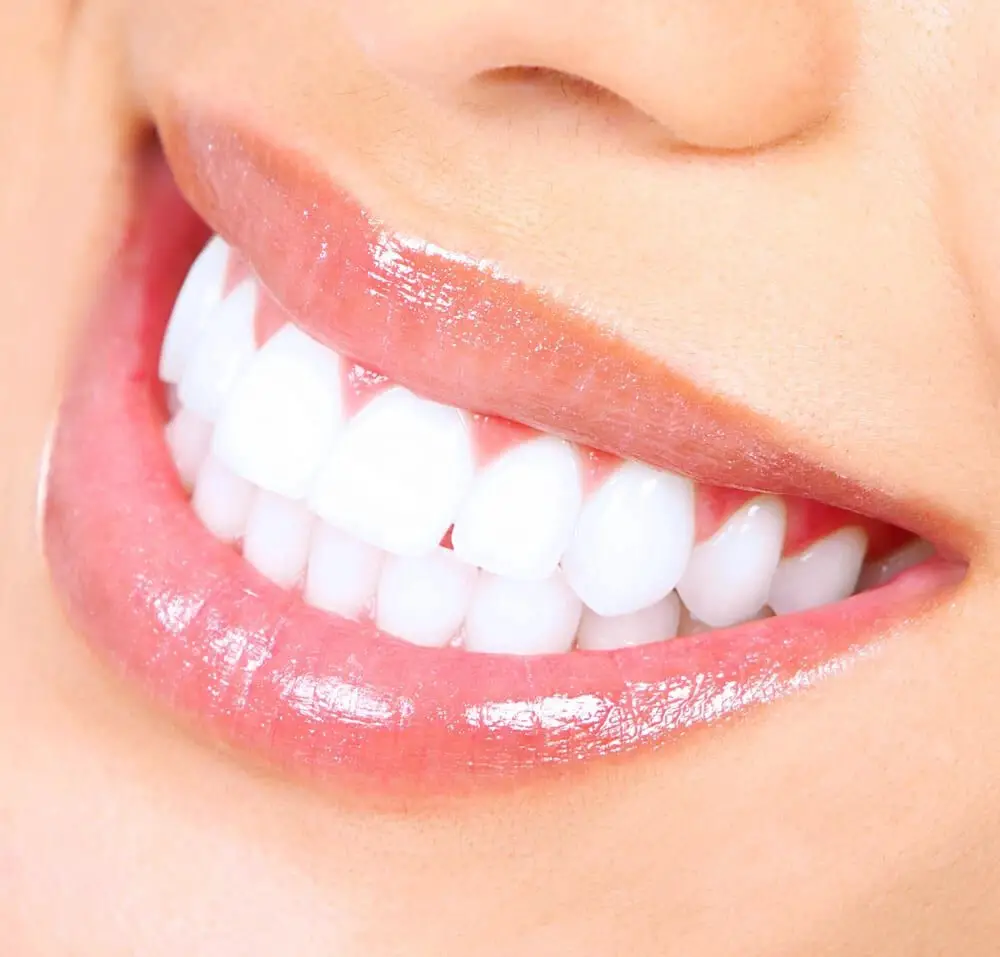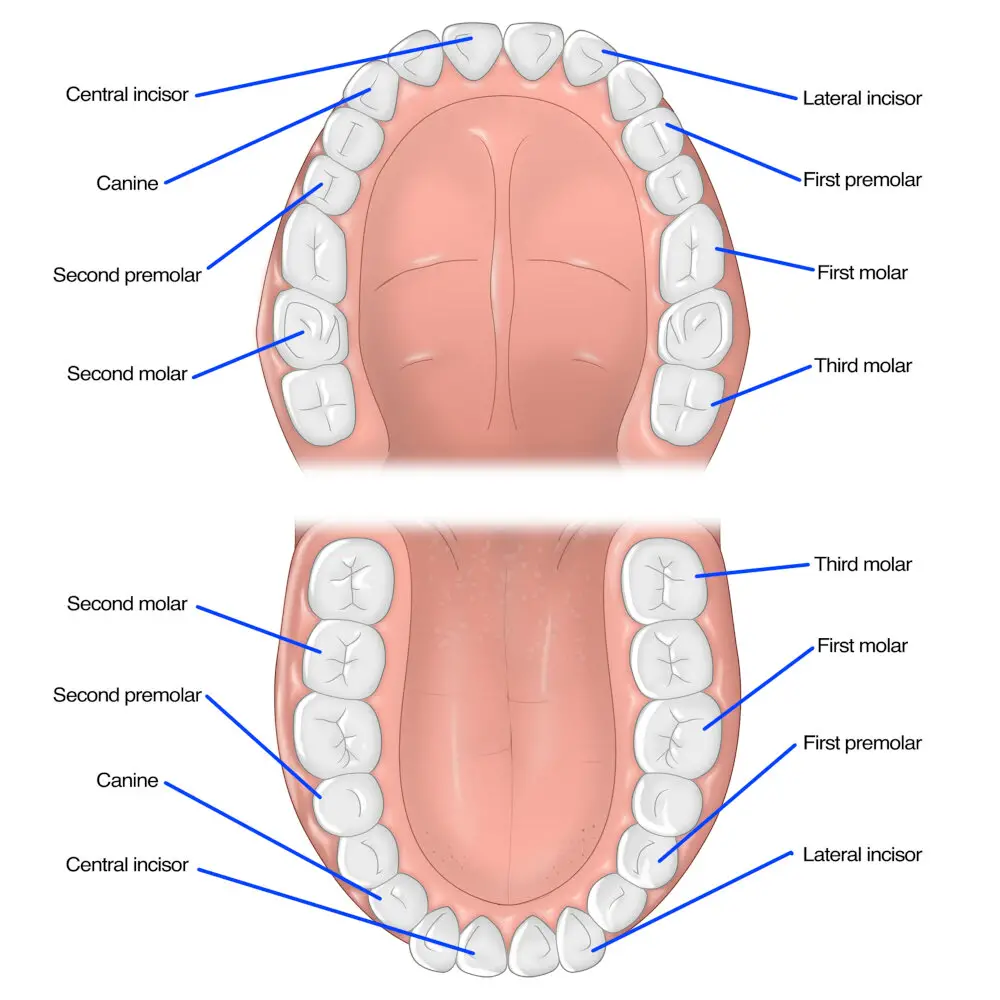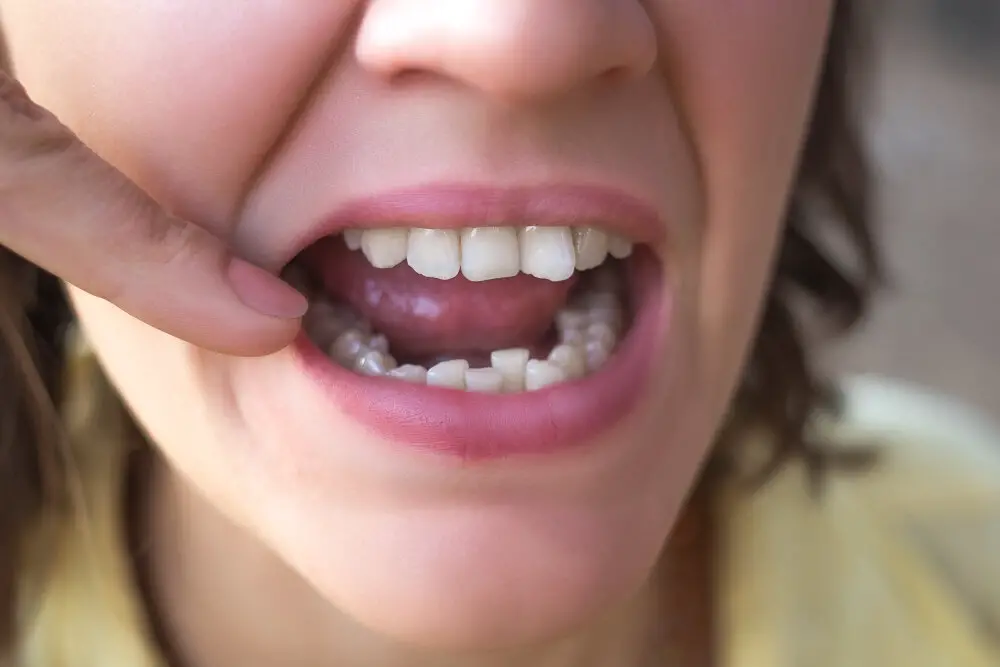Understanding Wisdom Teeth Pain: A Comprehensive Guide

Wisdom teeth are the third set of molars that usually emerge during the late teens or early twenties. While some people are lucky enough to have them grow without any issues, many others experience wisdom teeth pain and discomfort. This type of pain can range from mild to severe and can have a significant impact on one’s quality of life. Therefore, understanding the causes, symptoms, and treatment options for wisdom teeth pain is crucial for maintaining good oral health and wellbeing. This comprehensive guide aims to provide you with all the necessary information about wisdom teeth pain. We will delve into the causes of wisdom teeth pain, including impaction and infection, and explore the symptoms that may accompany it. Additionally, we will discuss the various treatment options available, such as pain relief medications and surgical extraction. By the end of this guide, you will have a better understanding of wisdom teeth pain and how to manage it effectively.
Wisdom teeth, also known as third molars, are the last set of molars that grow in the back of the mouth, usually appearing between the ages of 17 and 25. Most people have four wisdom teeth, one in each quadrant of the mouth. Wisdom teeth may not always cause problems, but they can become impacted or cause pain and discomfort when they try to emerge. In some cases, they may need to be extracted to prevent further complications. Understanding the signs and symptoms of wisdom teeth pain is crucial to maintaining good oral health and preventing unnecessary discomfort.
Wisdom teeth, also known as third molars, can cause pain due to a variety of reasons. One of the main causes of pain is impaction, which occurs when the wisdom teeth do not have enough room to fully emerge from the gums. This can lead to pressure on surrounding teeth, causing discomfort and pain. Additionally, wisdom teeth can become infected or inflamed, leading to pain in the surrounding area. Poor oral hygiene can also contribute to pain, as it can lead to decay or gum disease in the area around the wisdom teeth. Finally, the process of wisdom teeth eruption itself can cause pain as the teeth move through the jawbone and gum tissue. Overall, the pain associated with wisdom teeth can be significant and may require treatment to alleviate discomfort and prevent further complications.
Wisdom teeth pain is a common and often uncomfortable experience for many individuals. It is important to understand the causes and symptoms of wisdom teeth pain in order to properly address and manage it. Ignoring or neglecting wisdom teeth pain can lead to serious dental complications such as infection, gum disease, and even damage to surrounding teeth. In some cases, wisdom teeth may need to be removed in order to alleviate pain and prevent further issues. By understanding the nature of wisdom teeth pain and seeking professional guidance, individuals can take control of their oral health and avoid potentially harmful consequences.
Causes of Wisdom Teeth Pain

Wisdom teeth, also known as third molars, are the last set of teeth to emerge in your mouth. They usually develop between the ages of 17 and 25, although they may appear later or not at all. Wisdom teeth pain is a common problem that affects many people. It can be caused by various factors, such as impaction, infection, cavities, or gum disease. Impaction occurs when the wisdom teeth do not have enough space to grow and become trapped between the jawbone and the gums. This can cause pain, swelling, and inflammation, and may also lead to infection, abscesses, or cysts. Infection can occur when bacteria enter the gums around the impacted teeth and cause inflammation and pain. Cavities can develop in wisdom teeth that have partially erupted, making them more vulnerable to decay and infection. Gum disease can also affect wisdom teeth, causing inflammation, infection, and pain. Other factors that can contribute to wisdom teeth pain include trauma, such as a blow to the face or jaw, or grinding or clenching of teeth, which can put pressure on the teeth and cause pain. Additionally, wisdom teeth pain can be a symptom of other dental or medical conditions, such as temporomandibular joint (TMJ) disorders, sinus infections, or ear infections. It is important to consult a dentist or medical professional if you experience persistent or severe wisdom teeth pain, as they can help identify the underlying cause and recommend appropriate treatment options. Treatment may include pain relief medication, antibiotics, or in some cases, wisdom teeth removal.
Impacted wisdom teeth are a common dental issue that can cause significant discomfort and pain. When wisdom teeth do not have enough room to emerge or grow properly, they can become impacted, meaning they are blocked by other teeth or bone. As a result, they may only partially emerge, grow in at an angle, or remain completely trapped beneath the gumline. Impacted wisdom teeth can lead to a range of problems, including infections, tooth decay, gum disease, and damage to surrounding teeth. Symptoms of impacted wisdom teeth may include pain, swelling, tenderness, and difficulty opening the mouth. In severe cases, surgery may be necessary to remove the impacted teeth and prevent further complications.
Infection and inflammation are common complications associated with wisdom teeth pain. Infection occurs when harmful bacteria invade the gum tissue surrounding the wisdom teeth, causing redness, swelling, and tenderness. Inflammation, on the other hand, is the body’s natural response to infection or injury, characterized by heat, pain, and swelling. If left untreated, infection and inflammation can lead to more serious health problems, including the spread of infection to other parts of the body. Therefore, it is important to seek prompt dental care if you experience any symptoms of infection or inflammation related to your wisdom teeth.
Cysts and tumors are two potential complications that can arise due to wisdom teeth. Cysts are fluid-filled sacs that can form around the tooth, while tumors are abnormal growths that can occur in the surrounding tissues. These conditions can be asymptomatic or cause discomfort, swelling, and pain. If left untreated, cysts and tumors can damage nearby teeth, nerves, and jawbone. Thus, it’s crucial to have regular dental checkups and to consult with a dental professional if experiencing any wisdom teeth pain. Treatment may involve antibiotics, oral surgery, or removal of the affected tooth.
Gum disease, also known as periodontal disease, is a common dental problem characterized by inflammation and infection of the gum tissues. It is caused by the accumulation of plaque and bacteria on the teeth and gums, which can lead to gum recession, tooth loss, and even systemic health problems like heart disease and diabetes. Symptoms of gum disease include red and swollen gums, bleeding during brushing or flossing, bad breath, and changes in the bite or alignment of the teeth. Treatment options for gum disease include professional cleaning, antibiotics, and in severe cases, surgery. It is important to maintain good oral hygiene and visit the dentist regularly to prevent gum disease and other dental problems.
Symptoms of Wisdom Teeth Pain

Wisdom teeth pain is a common dental issue that many people experience during their late teens or early twenties. Wisdom teeth, also known as third molars, are the last set of teeth to emerge in the back of your mouth. When there is not enough room for the wisdom teeth to grow, they may become impacted, leading to pain and discomfort. The symptoms of wisdom teeth pain can vary depending on the severity of the issue. Some common symptoms include swelling and tenderness in the gums, pain or discomfort in the jaw, and difficulty opening your mouth. You may also experience a bad taste in your mouth or bad breath due to the buildup of bacteria in the affected area. Another symptom of wisdom teeth pain is headaches or earaches. This is because the impacted wisdom teeth can put pressure on the surrounding nerves, causing pain to radiate to other areas of the head and face. In some cases, the impacted wisdom teeth can also cause sinus pain and congestion. If you experience any of these symptoms, it is important to seek dental treatment as soon as possible. Delaying treatment can lead to further complications, such as infection or damage to the surrounding teeth and gums. Your dentist will be able to diagnose the issue and recommend the appropriate treatment, which may include extraction of the impacted wisdom teeth.
Jaw pain and swelling are common symptoms associated with wisdom teeth pain. The wisdom teeth, also known as third molars, typically erupt during the late teenage years or early adulthood. In some cases, these teeth can cause discomfort and lead to infection if they become impacted. Impacted wisdom teeth can cause inflammation and swelling in the surrounding gum tissue, which can result in pain and tenderness in the jaw. In severe cases, the pain and swelling can extend to the cheeks and neck, making it difficult to eat or speak properly. If you are experiencing jaw pain and swelling, it is important to consult with a dental professional to determine the underlying cause and develop an appropriate treatment plan.
Toothache is a common symptom experienced by individuals with wisdom teeth pain. It is characterized by a dull, persistent discomfort or sharp, intense pain around the affected tooth or teeth. This pain can be caused by a variety of factors, including decay, infection, and inflammation. In some cases, the pain may radiate to the surrounding areas of the mouth, jaw, and even the head and neck. It is important to address toothache promptly, as it can indicate a more serious underlying issue and can lead to further complications if left untreated. Treatment options for toothache may include pain relief medications, dental procedures such as fillings or extractions, and lifestyle modifications such as improving oral hygiene habits.
Headache is a common symptom associated with wisdom teeth pain. This discomfort can range from mild to severe and may be felt on one or both sides of the head. The pain can also be accompanied by sensitivity to light, nausea, and dizziness. Headaches caused by wisdom teeth pain can be managed with over-the-counter pain relievers such as ibuprofen or acetaminophen, as well as applying a cold compress to the affected area. If the headache persists or becomes severe, it is important to consult a dentist or physician for further evaluation and treatment. Understanding the various symptoms associated with wisdom teeth pain can help individuals manage their discomfort and seek appropriate care when necessary.
Bad breath, also known as halitosis, can be an embarrassing and unpleasant oral health issue. It is often caused by the buildup of bacteria in the mouth that produce sulfur compounds, resulting in a foul odor. Poor oral hygiene, gum disease, and certain foods can all contribute to bad breath. In some cases, wisdom teeth that have not fully erupted can also be a factor. Regular brushing, flossing, and tongue cleaning can help prevent and reduce bad breath. If the issue persists, it is important to see a dentist to rule out any underlying dental problems.
Difficulty opening the mouth is a common symptom of wisdom teeth pain. This occurs due to swelling and inflammation in the area surrounding the wisdom teeth. As the wisdom teeth grow, they can push against the adjacent teeth, causing discomfort and pain. This pain can radiate to the jaw and make it difficult to open the mouth fully. Additionally, the development of wisdom teeth can cause the gums to become inflamed and sore, which can make it difficult to eat and speak comfortably. In severe cases, the difficulty in opening the mouth can be accompanied by headaches and earaches, which can further exacerbate the discomfort. It is important to address wisdom teeth pain promptly to prevent further complications and to alleviate discomfort.
Swollen glands, also known as lymphadenopathy, can be a common symptom of wisdom teeth pain. The lymph nodes in the jaw and neck area can become swollen and tender due to the inflammation caused by the impacted teeth. This can cause discomfort and pain when chewing, speaking, or opening the mouth. It is important to note that swollen glands can also be a symptom of other medical conditions, such as infections or autoimmune diseases, so it is important to consult a healthcare provider if the swelling persists or is accompanied by other symptoms.
Treatment for Wisdom Teeth Pain

Over-the-counter pain relievers are a popular option for managing wisdom teeth pain. These medications, which include nonsteroidal anti-inflammatory drugs (NSAIDs) like ibuprofen and acetaminophen, are readily available at most drugstores and can be effective at reducing inflammation and discomfort. However, it’s important to follow dosing instructions carefully and not to rely on these medications for long-term pain relief. Additionally, certain individuals may be advised to avoid or limit their use of NSAIDs due to underlying health conditions. If you have concerns about using over-the-counter pain relievers for your wisdom teeth pain, consult with your dentist or healthcare provider for personalized advice.
Prescription medication can be a helpful tool in managing wisdom teeth pain. Depending on the severity of the pain, a dentist or oral surgeon may prescribe a variety of different medications, such as opioids, nonsteroidal anti-inflammatory drugs (NSAIDs), or steroids. It is important to follow the prescribed dosage and instructions closely, as some medications can be addictive or have adverse side effects if used improperly. Patients should also be aware of any potential interactions with other medications they may be taking. While prescription medication can provide relief, it should be used in conjunction with other pain management techniques, such as ice packs and rest, and only for as long as necessary.
Antibiotics are a class of drugs that are used to treat bacterial infections. They work by either killing bacteria or slowing their growth. Antibiotics are often prescribed to patients who are suffering from wisdom teeth pain that is caused by a bacterial infection. It is important to take antibiotics exactly as prescribed by a healthcare professional, and to finish the entire course of treatment even if symptoms improve. Overuse or misuse of antibiotics can lead to the development of antibiotic resistance, which can make it more difficult to treat infections in the future. In addition to taking antibiotics, patients can also manage wisdom teeth pain by using over-the-counter pain medications, applying ice to the affected area, and rinsing their mouth with warm salt water.
Saltwater rinse is a simple, yet effective way to alleviate wisdom teeth pain. It involves mixing salt in warm water and swishing it around your mouth for a few minutes. The saltwater solution helps to reduce inflammation and fight off infection, which are common causes of wisdom teeth pain. Additionally, it can also help to loosen any food particles or debris that may be contributing to discomfort. Saltwater rinse is a natural remedy that can be done multiple times a day to provide relief from wisdom teeth pain. It is a cost-effective and easily accessible option for those who are looking for a quick and easy solution to their discomfort.
Extracting wisdom teeth is a common dental procedure that involves removing one or more of the molars located at the back of the mouth. Wisdom teeth typically emerge during the late teenage years or early adulthood, but they can cause pain and discomfort if they become impacted or grow in at an angle. Extraction may also be recommended if the teeth are decayed, infected, or damaging adjacent teeth. The procedure is typically performed under local anesthesia, and patients may experience some discomfort and swelling for a few days afterward. However, with proper aftercare, most people can return to their normal activities within a week. In some cases, pain medication and antibiotics may be prescribed to manage discomfort and prevent infection.
In severe cases of wisdom teeth pain, surgery may be necessary. This is often the case when the teeth are impacted, meaning that they are unable to fully emerge from the gums. Impacted wisdom teeth can cause a range of problems, including pain, infection, and damage to nearby teeth. In such cases, a dentist or oral surgeon will need to perform a surgical procedure to remove the teeth. This is typically done under local anesthesia, and patients can usually return to their normal activities within a few days. While surgery may seem intimidating, it is often the most effective way to alleviate wisdom teeth pain and prevent further complications.
Prevention of Wisdom Teeth Pain

Wisdom teeth, also known as third molars, are the final set of molars that emerge in the back of the mouth during early adulthood. While they can be a valuable asset to the mouth when properly aligned, they can also cause pain and discomfort when they become impacted or infected. Fortunately, there are several preventive measures that can be taken to reduce the risk of wisdom teeth pain. One of the most effective ways to prevent wisdom teeth pain is to maintain good oral hygiene practices. This includes brushing and flossing regularly and visiting the dentist for routine cleanings and checkups. By keeping the mouth clean and healthy, there is less chance for bacteria to build up and cause infection or inflammation around the wisdom teeth. Additionally, a diet that is high in calcium and vitamin D can help strengthen the teeth and bones, reducing the likelihood of dental problems. If a person is experiencing pain or discomfort in the wisdom teeth, it is important to see a dentist as soon as possible to address any underlying issues before they worsen.
Regular dental checkups are crucial for maintaining good oral health, especially when it comes to wisdom teeth. These molars, which typically emerge in late adolescence or early adulthood, can cause a variety of problems if they’re not properly monitored. During a routine dental exam, your dentist will check the positioning of your wisdom teeth and monitor any potential issues, such as impaction or infection. By catching these issues early on, you can avoid more serious complications down the road, such as tooth decay, gum disease, or even damage to adjacent teeth. So if you’re experiencing wisdom teeth pain or haven’t had a dental checkup in a while, make an appointment with your dentist today.
Good oral hygiene is crucial in maintaining healthy teeth and gums, and preventing wisdom teeth pain. Regular brushing with fluoride toothpaste, flossing, and using mouthwash can help remove plaque and bacteria that can lead to tooth decay and gum disease. It is recommended to brush twice a day for at least two minutes each time and floss at least once a day. In addition to daily oral care, it is important to schedule regular dental check-ups and cleanings to detect and treat any potential issues early on. By practicing good oral hygiene habits, one can help ensure a healthy and pain-free mouth, including the area around the wisdom teeth.
Early detection and treatment of oral problems is essential to maintaining good oral health. This is particularly important when it comes to wisdom teeth, as problems with these teeth can cause significant pain and discomfort. Regular dental check-ups and x-rays can help identify any issues with wisdom teeth before they become more serious. If problems are detected, treatment can include extraction of the affected tooth or teeth, or other measures such as antibiotics or pain relief medication. By taking a proactive approach to oral health and seeking prompt treatment when necessary, individuals can avoid the pain and discomfort associated with wisdom teeth problems and maintain optimal oral health for years to come.
Maintaining a healthy diet is crucial for overall health, including oral health. A well-balanced diet rich in nutrients, such as calcium, vitamin D, and vitamin C, can help prevent tooth decay and gum disease. Avoiding sugary and acidic foods and beverages can also help protect your teeth and gums. Additionally, drinking plenty of water can help rinse away food particles and bacteria that can lead to dental problems. Eating a healthy diet and practicing good oral hygiene, such as brushing and flossing regularly, can help keep your teeth and gums healthy and pain-free, including during the eruption of wisdom teeth.
Avoiding tobacco and alcohol is crucial for a healthy lifestyle, especially when it comes to managing wisdom teeth pain. Tobacco use and heavy alcohol consumption can slow down the healing process and increase the risk of complications, such as infections and dry socket. Smoking can also worsen the pain and delay the recovery process. Additionally, alcohol can interfere with the effectiveness of pain medications and increase the risk of bleeding. It is essential to avoid these substances and follow a healthy diet and lifestyle to promote proper healing and alleviate wisdom teeth pain.
Wisdom teeth pain is a common dental problem that affects many people. The pain usually occurs when the third molars, commonly known as wisdom teeth, emerge in the late teenage years or early adulthood. The pain can be caused by several factors, including infection, gum disease, tooth decay, or overcrowding. The symptoms of wisdom teeth pain may include swelling, redness, tenderness, difficulty opening the mouth, and pain in the jaw, teeth, and gums. The treatments for wisdom teeth pain include over-the-counter painkillers, antibiotics, saltwater rinses, and in severe cases, surgical removal of the wisdom teeth. It is important to seek dental care if you experience any symptoms of wisdom teeth pain to prevent further complications.
Seeking professional dental care is crucial for maintaining oral health and preventing complications such as wisdom teeth pain. Regular visits to a dentist can help detect dental issues early and prevent them from worsening. In the case of wisdom teeth pain, a dentist can determine the cause of the pain and recommend the best treatment options, which may include extraction. Ignoring dental problems can lead to severe pain, infection, and even tooth loss. It is essential to prioritize dental care and seek professional help whenever necessary to prevent and manage dental issues effectively.
When it comes to wisdom teeth pain, prevention and maintaining good oral health are key. Regular dental check-ups and cleanings can help identify any issues early on and prevent them from developing into bigger problems. Brushing and flossing twice a day are also essential for keeping your teeth and gums healthy. Additionally, avoiding sugary and acidic foods and drinks and quitting smoking can go a long way in preventing tooth decay and gum disease. Taking good care of your oral health not only helps prevent wisdom teeth pain, but also promotes overall health and well-being.
Conclusion

In conclusion, understanding wisdom teeth pain is crucial for anyone who is experiencing discomfort in their mouth. This comprehensive guide has provided a wealth of information on the causes, symptoms, and treatments of wisdom teeth pain. From practicing good oral hygiene to seeking professional dental care, there are many ways to alleviate the discomfort and prevent further complications. It is important to be proactive in addressing wisdom teeth pain to ensure that it does not affect your overall wellbeing. By following the tips and advice outlined in this guide, you can take control of your oral health and enjoy a pain-free life.







